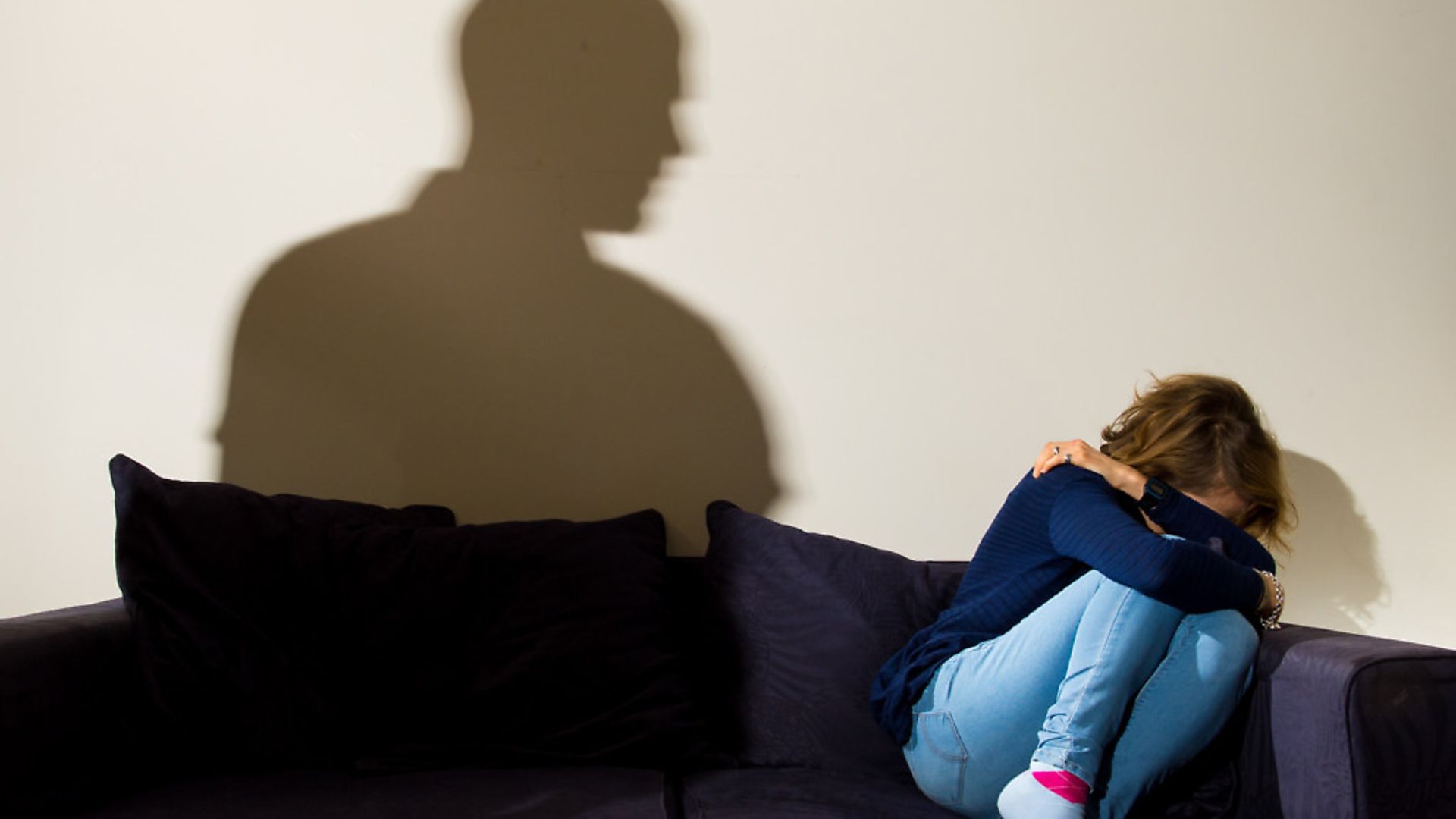
MARY HONEYBALL on the many ways women are suffering from the measures used to tackle the virus.
On June 5, Dani Wallace’s The Big Festoon is hitting a computer screen near you. A survivor of domestic violence and homelessness, Dani was a single parent for many years. The Big Festoon is a 12-hour online event involving 12 celebrities and 12 global entrepreneurs coming together live in lockdown via an online meeting of minds to inspire, entertain, educate and fundraise for domestic violence charities Women’s Aid and Galop. Dani is interviewing the celebrities and entrepreneurs, aiming to raise our spirits while coping with the coronavirus restrictions.
Her efforts are sorely needed and her avowedly happy event is set to cheer us up. We are urged to link arms, virtually of course, to create a buzz to raise money and change lives. Funding to combat domestic abuse is needed now more than ever. Lockdowns across the world have led to a serious increase in domestic violence. At the end of April, none other than former prime minister Theresa May urged the government to consider the impact of the UK’s lockdown on domestic abuse as it planned the exit strategy. She pointed out that there had been a surge in domestic violence in the weeks following the lockdown. Killings had risen, and the number of calls to the National Domestic Abuse helpline run by Refuge had also increased. At the beginning of this month the World Health Organisation’s European Director told a press briefing that the number of women making emergency calls across the continent had risen by 60% in April compared with the same month last year.
It took a woman former prime minister to speak out about the appalling rise in domestic abuse as families have been kept at home. Thankfully the Domestic Abuse Bill originally proposed while May was in office has now been introduced into the House of Commons, though it will more than likely be too late for those victims (almost all of whom are women) hit by the rise in violence following the measures to deal with the coronavirus pandemic. While they may be supporting legislation in the UK, the current government have steadfastly refused to ratify the Istanbul Convention, the international human rights treaty promoted by the Council of Europe to prevent and combat violence against women and domestic abuse.
Women are losing out all round as the government seeks to contain the pandemic. A recent report by the Institute for Fiscal Studies and University College London found where both parents were working, mothers were only able to do one hour of uninterrupted work for every three hours done by fathers. Mothers were also doing more childcare and housework than fathers who had the same work arrangements. Tellingly, the research showed that the only sets of households where mothers and fathers shared childcare and housework equally were those in which both parents had been working but the father had stopped working for pay while the mother was still in paid work.
An increasing body of evidence shows that women are bearing the emotional brunt of the coronavirus pandemic in Britain. According to a survey for the Fawcett Society conducted by Ipsos Mori, women are taking on greater levels of stress and anxiety during the country’s lockdown. Women are more likely to have experienced disruption to work and finances with 33% saying their workplaces had closed while only 25% of men had suffered the same fate.
Women are suffering more than men at every level. Gender equality in the UK, across Europe, in the United States and doubtless elsewhere is receding in terms of violence and abuse against women, women’s position in the workplace and home and in women’s economic standing. The progress towards equality which many thought was inevitable and would continue come what may is inherently fragile. Progress may have been made while times were good. Now that the world has been hit by an aggressive virus with no cure as yet, we are going backwards.
The way in which gender equality has been halted and even reversed is a huge lesson for everyone who thinks women and men should be treated equally. Women deserve the same opportunities as men. They should be paid on an equal basis. Childcare and other provision should be in place to allow women to achieve their potential. Equality is unfortunately not a given in Britain or most other countries in 2020. Vigilance is required.
Women must not be consigned back to the days when they stayed at home with very little scope to do anything else. Everyone deserves a chance and a choice. The EU, with its Gender Equality Institute and the European parliament Women’s Rights Committee, was until the end of last year the one place where Britain could develop policy on gender equality. The country now has to rely on a male-dominated government with very little idea about gender equality, let alone any political will to ensure the position of women prior to the pandemic is maintained, if not improved, when the country returns to something like normality.
Mary Honeyball was an MEP from 2000-2019 and vice-chair of the European parliament Women’s Rights Committee.
To find out more about The Big Festoon, visit www.iamthequeenbee.co.uk/thebigfestoon.
Warning: Illegal string offset 'link_id' in /mnt/storage/stage/www/wp-includes/bookmark.php on line 357
Notice: Trying to get property 'link_id' of non-object in /mnt/storage/stage/www/wp-includes/bookmark.php on line 37






